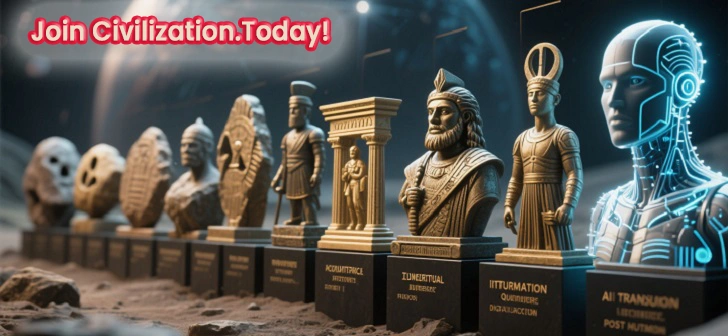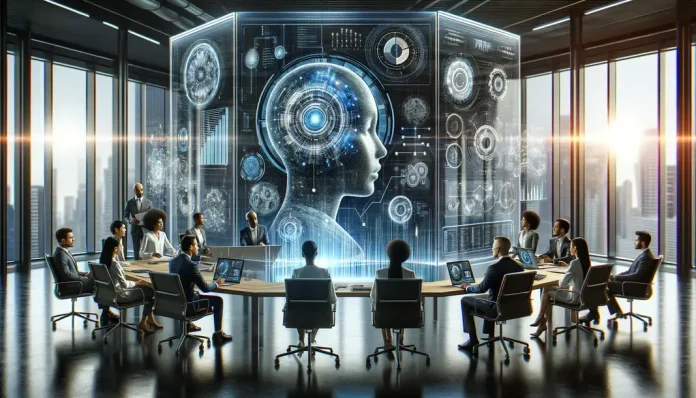Artificial Intelligence (AI) is no longer a futuristic concept—it’s here, accelerating faster than most industries can adapt. While some celebrate its potential to boost productivity, others fear job losses, economic inequality, and market disruption. This new wave of technological transformation is giving birth to a complex, evolving phenomenon: the AI Economy.
In this article, we’ll explore how automation is reshaping the distribution of wealth, redefining the nature of work, and creating unprecedented opportunities for those who can adapt.
What is the AI Economy?
The AI Economy refers to the economic ecosystem driven by artificial intelligence, where automation, machine learning, and robotics take center stage in decision-making, production, and services. Unlike past industrial revolutions, AI doesn’t just replace manual labor—it replaces cognitive tasks traditionally reserved for humans, from data analysis to customer service and even creative work.
In this new economy:
- Machines can outperform humans in speed, accuracy, and scalability.
- Data becomes the most valuable asset, surpassing even oil.
- Economic power shifts toward those who control AI systems and data infrastructure.
Automation’s Double-Edged Sword
AI-powered automation is transforming industries at breakneck speed. Here’s the paradox: while automation increases efficiency and productivity, it also threatens traditional employment structures.
Positive Impacts:
- Cost Reduction. Companies save billions by automating repetitive processes.
- Higher Productivity. AI can work 24/7 without fatigue.
- New Job Creation. Emerging fields like AI ethics, data science, and prompt engineering are growing rapidly.
Negative Impacts:
- Job Displacement. Roles in manufacturing, retail, and clerical work are shrinking.
- Wage Polarization. High-skill AI-related jobs pay more, while low-skill jobs see stagnant wages.
- Wealth Concentration. Profits from AI often flow to a few tech giants, widening the inequality gap.
The Wealth Shift: Who Wins in the AI Economy?
In the AI Economy, wealth accumulation favors those who own:
- AI Infrastructure – Cloud computing platforms, AI chips, and software tools.
- Massive Datasets – Data is the raw material that feeds AI algorithms.
- Intellectual Property – Patents for AI models and applications.
Tech giants like Google, Amazon, and Microsoft are positioned to dominate, but nimble startups can still disrupt niches with specialized AI applications. The risk? Without regulation, AI could deepen global inequality, creating an elite “AI-owning class” and leaving others struggling.
How Work Will Change in the AI Economy
The very definition of work is being rewritten. Here’s what to expect:
1. The Rise of Hybrid Roles
Rather than replacing all jobs, AI will often become a “co-worker.” For example:
- Doctors will use AI for faster diagnoses.
- Lawyers will leverage AI for case research.
- Marketers will automate audience targeting.
2. Lifelong Learning Becomes Essential
With technology evolving daily, workers must reskill continuously. This means:
- Upskilling in AI literacy and data analysis.
- Learning creative, strategic, and emotional intelligence skills—areas where AI still lags.
3. Global Talent Competition
Remote AI-driven work removes geographical barriers. Companies can hire the best talent from anywhere, but this also means local workers compete with a global labor pool.
AI Economy and Global Markets
AI’s economic influence is not limited to individual jobs—it’s reshaping global trade, investment, and productivity.
- Emerging Economies. Countries that adopt AI early could leapfrog others in productivity.
- Trade Patterns. AI-driven manufacturing reduces the need for cheap labor abroad.
- Financial Markets. Algorithmic trading, powered by AI, already controls a significant share of market activity.
The nations that integrate AI into their economic policies will likely lead the next global power shift.
Ethics, Regulation, and the Future of Wealth Distribution
Without careful governance, the AI Economy could spiral into extreme inequality. Some proposed solutions include:
- Universal Basic Income (UBI) to provide a safety net for displaced workers.
- AI Taxes on companies replacing human labor.
- Data Ownership Rights allowing individuals to profit from their personal data.
Governments and policymakers must balance innovation with fairness, ensuring that AI’s benefits are shared widely.
Opportunities for Individuals in the AI Economy
Not everything is doom and gloom—AI creates incredible opportunities for those willing to adapt.
- Become an AI Specialist
Demand for AI engineers, data scientists, and machine learning experts is skyrocketing. - Leverage AI Tools
Entrepreneurs and freelancers can use AI platforms to scale businesses faster than ever before. - Focus on Human-Centric Skills
Creativity, empathy, negotiation, and leadership are harder to automate, making them valuable.
The Road Ahead
The AI Economy is not just about technology—it’s about societal transformation. The winners will be:
- Individuals who embrace change and continuously learn.
- Companies that integrate AI ethically and efficiently.
- Nations that invest in AI education, infrastructure, and regulation.
The losers? Those who ignore the shift, clinging to outdated economic models.
Conclusion: Adapt or Be Left Behind
We are standing at the dawn of a new economic era where AI Economy principles will dictate who thrives and who struggles. Just like the Industrial Revolution redefined work and wealth centuries ago, AI will force us to rethink value creation, labor, and fairness.
The choice is clear: embrace the AI-driven future, reskill for relevance, and seize the opportunities this transformation offers—or risk being left behind in the age of automation.
Final Thought: The AI Economy is not something to fear—it’s something to prepare for. Those who act now will be the ones writing the economic rules of the future.



